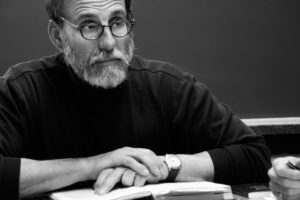Can We Speak of a Divine Purpose to the Holocaust? Hasidic and Religious Zionist Perspectives (4/12/18)
April 12th at 7 p.m.

Vanderbilt Divinity School Reading Room
“Where was God in the Holocaust?” is one of the most frequently asked questions when the Holocaust is studied from a theological perspective. From a traditional covenantal point-of-view, one cannot easily say that God was absent in the Holocaust. Yet, from an empirical point-of-view, the Jews seemed victim not only of the Nazi onslaught, but also God having abandoned them. Hasidic and Religious Zionist thinkers each have different evocative ways of viewing God’s presence in the Holocaust, even giving the genocidal tragedy a divine purpose. In this lecture, Dr. Shaul Magid, the Jay and Jeanie Schottenstein Chair in Jewish Studies at Indiana University, will critically explore some of these views.
Dr. Shaul Magid is a professor of Jewish Studies and Religious Studies at Indiana University-Bloomington. His works have included Hasidism on the Margin: Reconciliation, Antinomianism, and Messianism in Izbica and Radzin Hasidism (University of Wisconsin Press, 2003), From Metaphysics to Midrash: Myth, History, and the Interpretation of Scripture in Lurianic Kabbala (Bloomington, IN: Indiana University Press, 2008), American Post-Judaism: Identity and Renewal in a Postethnic Society (Indiana University Press, 2013) and Hasidism Incarnate: Hasidism, Christianity, and the Construction of Modern Judaism (Stanford University Press, 2014).

